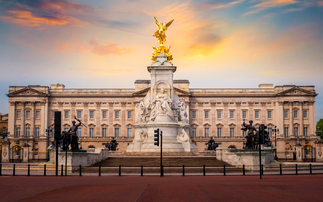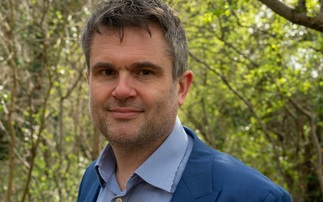The next London mayor will have the power to put rocket boosters under the entire UK's green economy - here are 10 proposals that could turn the capital into a low carbon powerhouse
6. Make good on distributed energy promises
All of the mayoral candidates have had encouraging things to say about the need to turn London from a laggard to a leader on solar power, but details on how precisely this will be achieved remain sketchy.
Proposals for a city-wide body for auditing building's suitability for solar power is a step in the right direction, but there has to be a recognition of the logistical challenges that have seen London fail to embrace solar power in the first place, not to mention policies that will overcome the blow the sector has received from deep and premature subsidy cuts. Planning rules can play an important role in driving solar adoption, but that alone is unlikely to be enough.
Moreover, there needs to be recognition from the mayor that distributed energy is about a lot more than solar. A London solar strategy is welcome, but similar strategic thinking is required for renewable heat, energy from waste, fuel cells, kinetic power technologies, and, of course, the smart grid systems that help make them increasingly viable. You won't turn London into a clean tech hub unless you take concerted action to drive demand for emerging clean technologies.
7. Deliver ECO for London (or something similar)
One of the most notable aspects of Lord Barker's keynote address last week was the admission that as the former minister in charge of energy efficiency he regrets the failure to ensure the ECO retrofit scheme recognised the unique challenges faced by London properties. The simple reality is undertaking much needed energy efficiency upgrade work in London is more expensive than in every other part of the country, and as a result the capital struggled to get its fair share of ECO funding as energy companies understandably targeted more cost effective projects. Throw the notoriously poor quality of a large chunk of London's private rented sector into the mix and the capital has a serious domestic energy efficiency challenge on its hands.
Barker argued the new Mayor has to get straight on the phone to his former DECC colleague Amber Rudd and demand that the soon to be revamped ECO scheme addresses the London issue. But a truly green mayor needs to go much further still in tackling the capital's all too often cold and damp homes. With conversions and extensions a familiar feature on any London street it is time to dust off the disgracefully shelved and unfairly right wing media-branded ‘conservatory tax'. Again, a proper green mortgage programme that residents could pay for through resulting energy bill savings should neutralise concerns about upfront costs.
8. Face up to the coming reckoning on road pricing and air pollution
Once again, Mayor Boris got lucky. He was able to kick the need to reinvigorate the congestion charge far enough down the increasingly congested and polluted road to make it into his successor's problem. That successor will now have to deliver rapid progress to tackle congestion and air quality or watch the expanding city grind to a halt, while legal action against the government's air strategy piles up.
There are encouraging signs from all the candidates that they recognise the need to address the air crisis and some bold ideas for tackling it, ranging from the pedestrianisation of Oxford Street to the rapid roll out of greener taxis and buses and yet more investment in cycling. But none of these measures will be sufficient to bring London in line with the EU standards it continues to breach (and even if we leave the EU, as Goldsmith advocates, it seems unlikely he would be happy about the city's air continuing to kill its citizens).
As the Environmental Industries Commission argued recently, bolder action is needed on a host of fronts, including the phase out of diesel vehicles, cleaner building sites, and pollution capturing surfaces. Moreover, it seems inevitable the congestion charging nettle will have to be grasped at some point and the golden rule of electoral politics dictates if you have to do something controversial but necessary you are best off doing it early in your term.
9. Think bigger
If recent history is any guide anyone running for mayor will be hoping for at least two terms to deliver on their vision. Here's a slightly scary thought: if the next mayor does serve for eight years they will have been responsible for the capital for just shy of a quarter of the remaining time the UK has to deliver on its legally binding goal of cutting emission 80 per cent against 1990 levels by 2050. It is also worth noting that both the frontrunners, Khan and Goldsmith, are just about young enough to, all being well, offer their reflections as political greybeards in 2050 on how we hit the target or why we missed it.
Post-Paris Agreement, the time from the encouraging, but always insufficient, incrementalism of the Johnson and Livingstone approach to climate change and the environment is over. The next mayor has a responsibility to take a sizeable step towards deliver a net zero emission, pretty much fully decarbonised city.
To that end it is time for some big picture thinking from the next Mayor. David Symons of WSP Parsons Brinckerhoff argued the capital could be made all electric by 2035, bringing an end to air pollution and slashing carbon emissions before a child born today leaves their teenage years. Others on the panel argued there should be nothing to stop the capital joining the RE100 initiative and pledging to source 100 per cent renewable power. Similarly bold yet credible pledges on zero waste and climate resilience are also needed. But most of all the Mayor needs a credible long term plan to create a net zero emission metropolis - a plan that given eight years they could go a long way to delivering.
10. Become a champion for climate action
Which brings me to my final idea. Over and above the necessary green policy measures the new mayor must embrace, they must also become an unequivocal champion of climate action and the green economy. In an era where the Prime Minister favours triangulation on environmental issues over the green positioning that helped him get elected, the Chancellor is all too frequently openly hostile to green concerns, and the Labour leadership looks more disconnected from the electorate than ever, the role of the UK's premier political climate champion remains tragically vacant. It is a job opportunity the new Mayor must seize.
Imagine the invigorating effect on green business and investor confidence you would see if the next Mayor consciously emulated the likes of Barack Obama, Governor Schwarzenegger, and Mayor Bloomberg by using every opportunity to talk up the potential of the green economy and hammer home the importance of climate action.
Imagine a Mayor who instead of responding to reports Oxford Street is one of the most polluted highways in the world by engaging in a row over the precise metrics, acknowledged there was a major public health crisis underway and vowed to redouble efforts to embrace the cleaner technologies that will solve the problem.
Imagine a mayor who eschewed the temptation to use their considerable platform to pander to their party's wilder fringe, in favour of repeatedly making the case to ministers and the wider public for the kind of truly bold environmental leadership a city as great as London deserves.
In the 19th century, London was the first city in the world to systemically tackle the sanitation crisis. In the 20th century, it was the first major city to tackle the smog crisis that enveloped London's streets so completely that grimy fogs still shapes the popular imagination of the capital. In the 21st century London has the potential to be one of the first cities to full address the climate crisis. But it is going to take a lot, lot more than a few thousand Boris bikes.








